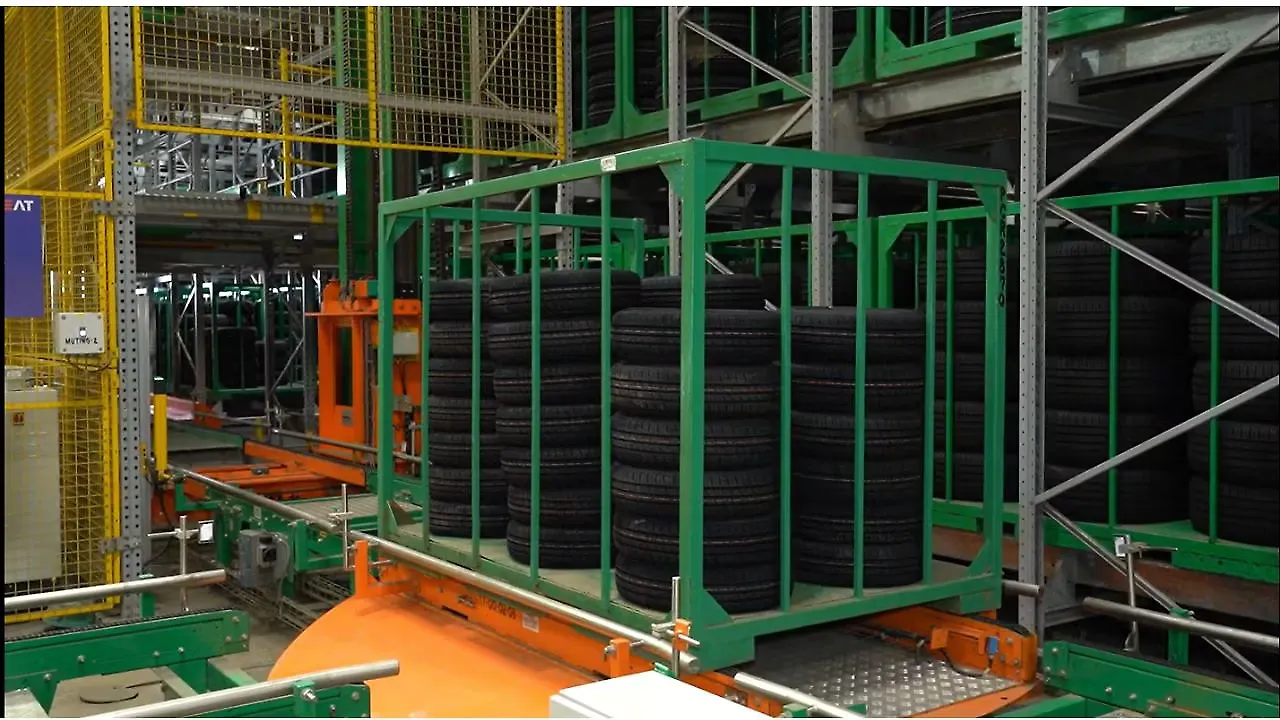
CEAT, a leading tyre manufacturer and the flagship entity of the RPG Group, is poised to make a significant leap into the US market with its truck and bus radial (TBR) tyres. Simultaneously, the company is intensifying its focus on bolstering its presence in the domestic market.
To accomplish this dual objective, CEAT is expanding its TBR tyre production capacity by establishing a dedicated production line at its Chennai facility, set to add approximately 1,500 units per day. This expansion will elevate the total TBR production capacity to over 6,000 units daily.
According to Jayasankar Kuruppal, Senior Vice President – Manufacturing at CEAT, the commercial production at the Chennai facility is expected to begin within a few months. This plant currently produces about 15,000 Passenger Car Radial (PCR) tyres and approximately 1,000 radial tyres for motorcycles every day.
Notably, the Chennai facility secured its first OEM approval from Yamaha within just a few months of commencing commercial production. Following this milestone, the company achieved approvals from ten more OEMs—including Hyundai, Altigreen, Ashok Leyland, Hero MotoCorp, Suzuki Motorcycles, PSA Groupe, Renault Nissan Mitsubishi, Royal Enfield, Mahindra, and TVS Motor—within 25 months. This accomplishment, which typically takes about five years for a greenfield project, highlights the facility's noteworthy performance.
Currently, around 19% of the company's turnover is generated from its international business, with aspirations to grow this share to a quarter of the total in the coming years.
Changing Market Dynamics
In the world of tyre manufacturing, adapting to changing market demands and technological advancements is crucial for staying competitive and CEAT is among a few tyre maker that has demonstrated this adaptability. In addition to the newest facility in Chennai, CEAT has five more manufacturing plants in India – Halol, Nashik, Nagpur, Bhandup and Ambernath.
The Halol plant specialises in the production of Passenger Car Radials (PCR) and Truck & Bus Radials (TBR), while the Nashik facility extends its expertise to a broader spectrum, including tyres for trucks, buses, light trucks, and agricultural vehicles, alongside PCR. In Nagpur, the focus shifts to two-wheelers and three-wheelers, with tyres crafted specifically for bikes, scooters, and auto-rickshaws. The Bhandup plant, the oldest in the network, continues its legacy by manufacturing tyres for trucks, buses, agricultural machinery, and specialised applications. Meanwhile, the Ambernath facility is dedicated to the precise craft of specialty tyres, maintaining a sharp focus on niche demands.
Innovative Technologies
The introduction of new technologies has set a new standard in the industry. Notably, the Chennai plant meets approximately 7% of its daylight needs through natural sunlight and sources up to 42% of its energy from green power, showcasing a strong commitment to sustainability

According to Jignesh Sharda, SVP, Quality Assurance, Sustainability and QBM, it is not just about new products, but also about innovation in the manufacturing process. He further elaborated on the company’s commitment to minimising its carbon footprint across operations by reducing greenhouse gas emissions intensity, enhancing energy efficiency, and promoting the use of renewable energy sources. These efforts are aimed at fostering a greener, more sustainable society and planet, he noted. Additionally, he emphasised the company's significant investments in research and development, focused on creating environmentally sustainable products and services with a minimal ecological impact.
Kuruppal pitched in stating that, for instance, the process of handling silica, a critical component in reducing rolling resistance of tyres, has historically led to longer cycle times compared to traditional carbon black ovens. He noted that in older factories of the company, this resulted in significant capacity loss. However, the new approach at its Chennai plant with equipment design has successfully mitigated this issue, allowing for higher silica processing without sacrificing capacity.
Entering the passenger radial segment in 2008 with a greenfield facility in Halol, the company was a latecomer to the game, but quickly made its mark. Starting with a modest production volume, the company rapidly scaled up its operations. By 2014, it had sold out their entire capacity and expanded from producing 8,000 tyres per day to 20,000. Recognising the challenges of selling this volume domestically, the company ventured into the European market, leveraging the strength of their Italian brand reputation. Despite starting with a small export volume, today their exports to Europe have soared to nearly a million tyres annually.
Challenges In Overseas Market
The company faced two significant challenges: gaining distributor approval without a full product range, and transitioning from a low-volume, high-SKU production model to one that could handle smaller batch sizes with high variability. “This shift has brought about a reduction in batch size from 1,000 to just 50, all while maintaining efficiency despite frequent changeovers and the introduction of greener materials,” Kuruppal said.
This commitment to innovation is further highlighted by their digital transformation efforts. The company’s Halol plant became the first tyre plant globally to receive the Lighthouse certification from the World Economic Forum for its digital transformation.
The Lighthouse certification is a prestigious recognition given to manufacturing facilities that are leaders in adopting and integrating cutting-edge technologies from the Fourth Industrial Revolution (4IR). Getting this certification was the result of strategic implementation of Industry 4.0 technologies, including AI, machine learning, and IoT, to address specific business challenges rather than just adopting technology for its own sake, he added.
Also Read: